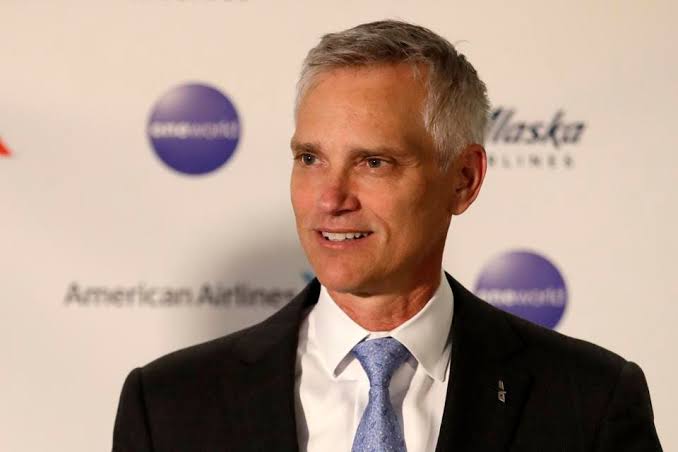American Airlines CEO Makes promises As Apology Tour Hits Good Morning American
American Airlines CEO Robert Isom’s Apology Tour: A Commitment to Rebuilding Trust
In the aftermath of a highly publicized incident involving the removal of eight Black passengers from an American Airlines flight, CEO Robert Isom has launched a public apology tour aimed at addressing systemic concerns, rebuilding customer trust, and committing to greater accountability. The tour, which includes media appearances such as his recent segment on Good Morning America, marks a defining moment for the airline as it faces growing scrutiny from both the public and civil rights groups.
The Incident and Immediate Response
The controversy began earlier this year when eight Black men were removed from a Phoenix to New York flight under unclear circumstances. Witnesses claimed there was no provocation from the passengers, and video footage appeared to support their account. The incident immediately sparked backlash, prompting public outrage and a lawsuit citing racial discrimination.
Robert Isom responded quickly. In a formal statement, he expressed that he was “incredibly disappointed” by what occurred and acknowledged that the airline had “fallen short” of its own standards. He emphasized that American Airlines must be a place where all passengers feel safe, respected, and valued—regardless of race or background.
Steps Toward Accountability and Change
Following the backlash, American Airlines has rolled out several initiatives aimed at addressing internal shortcomings and preventing similar incidents in the future. These changes, announced during Isom’s apology tour, are designed to promote transparency, inclusion, and customer confidence.
Establishment of an Advisory Group
One of the most significant announcements was the formation of a new advisory board focused on racial equity and inclusion. This group will consist of internal leadership, diversity consultants, and external community leaders tasked with reviewing airline procedures, customer experience data, and disciplinary practices. The group’s mission is to ensure that Black passengers and other marginalized communities are treated fairly and with dignity at every stage of their travel experience.
Enhanced Reporting Mechanisms
Isom also announced improvements to the airline’s internal reporting systems. These enhancements will allow employees and passengers to file complaints more easily and anonymously, especially in situations involving perceived bias or discrimination. The goal is to create a transparent and safe reporting culture, where employees feel empowered to speak up and management is held accountable for swift and appropriate action.
Policy Reevaluation
American Airlines has initiated a full-scale review of its operational and customer service policies. This includes how employees are trained to handle conflicts, how de-escalation techniques are applied, and the specific criteria 
Employee Education
A major part of the airline’s reform plan involves updating and expanding its employee training programs. All frontline workers and flight crews will now be required to undergo annual anti-bias training. In addition, customer service staff will receive additional instruction in conflict resolution and cultural sensitivity. These trainings will be evaluated regularly for effectiveness, with feedback loops in place to adjust content and delivery based on real-world results.
Engagement with Civil Rights Organizations
Recognizing the importance of accountability to the broader community, Isom has met with several civil rights groups including the NAACP, the Urban League, and the National Action Network. These meetings, many of which were held privately over the last few months, focused on developing collaborative strategies for inclusivity and prevention of racial profiling.
NAACP President Derrick Johnson, who met with Isom following the incident, said he appreciated the airline’s quick response and willingness to engage in direct dialogue. “It’s rare to see a major corporation take responsibility in such a visible and proactive way,” Johnson said. “Now, we’ll be watching to ensure the follow-through matches the promises.”
Financial Implications and Strategic Outlook
The fallout from the incident has not been purely reputational. American Airlines has faced financial turbulence as well. Following the news coverage and social media backlash, the airline saw a noticeable dip in its stock price. According to financial analysts, the controversy led to investor concerns about long-term brand damage and legal costs.
In Q2 2024, American Airlines reduced its earnings per share forecast, citing rising costs related to customer service reforms and legal counsel. Additionally, the airline forecast a decline in revenue per available seat mile (RASM)—a key profitability metric—compared to original projections.
Still, the company is optimistic about its long-term position. Isom emphasized that investing in equitable practices is not just morally right—it’s good business. “We are building a brand that stands for fairness, safety, and respect,” he stated during his Good Morning America appearance. “We believe this will ultimately attract more loyal customers and strengthen our workforce.”
Conclusion
Robert Isom’s apology tour signals more than just a public relations effort; it represents a commitment by American Airlines to confront its internal issues and move toward genuine equity. While only time will tell whether the promises made will translate into permanent change, the initial steps are promising.
With the formation of advisory boards, improved reporting structures, revised policies, and a renewed focus on employee education, the airline is laying the groundwork for systemic transformation. By engaging civil rights leaders and facing financial accountability, Isom is betting on transparency and trust as the path forward.
For American Airlines, this isn’t just about recovering from a scandal—it’s about defining what kind of airline it wants to be in the future. And for millions of travelers, it’s a question of whether that vision truly includes everyone.






